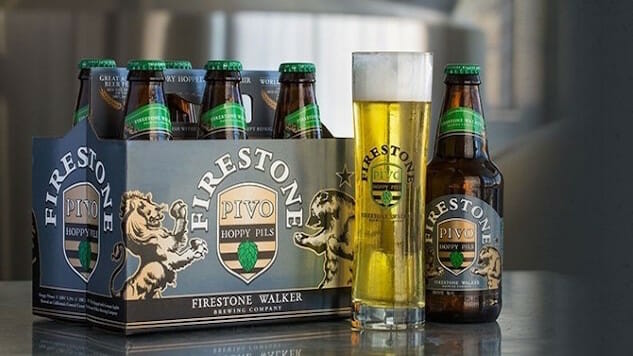Brew News: Look for More Pilsners and Lagers in 2017
Photo via Firestone Walker
A senior sets lofty goals, spent grains being put to good use, what to expect in 2017, Canadians get a beer ombudsman and Brits are crying into their pints. Read on for all the craft beer news fit for print.
Amherst, Mass.: It’s good to have goals
Each year 66-year-old Tim Kliegl sets a challenge for himself. It’s kind of like a New Year’s resolution, only Kliegl’s resolutions are usually more challenging than, say, pledging to make your bed every morning. Last December on his 65th birthday, the Amherst resident decided to run at least one mile and drink one new beer every day for a year. Kliegl outdid himself in the mileage department, logging 1,950 miles and kept track of his beers using the Untappd app. The retired UPS worker didn’t pick up running until he was 50, but has since completed 57 marathons including 11 finishes at the Boston Marathon. No word on what Kliegl’s next challenge will be though he told the Daily Hampshire Gazette that, “I’m trying to think of something that won’t kill me for 67.”
-

-

-

-

-

-

-

-

-

-

-

-

-

-

-

-

-

-

-

-

-

-

-

-

-

-

-

-

-

-

-

-

-

-

-

-

-

-

-

-








































